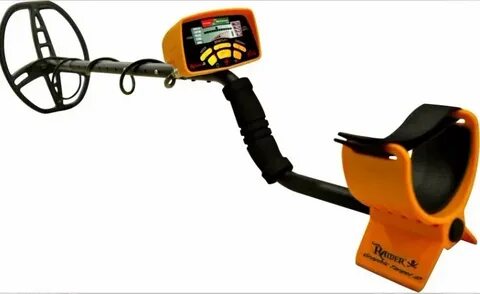Battery detectors are essential devices for ensuring electrical safety in various environments. In recent years, the advancement in technology has led to the development of a new battery detector device that is set to revolutionize the way electrical safety is managed. This innovative device is poised to be a game-changer in the field of electrical safety, providing unprecedented levels of accuracy and efficiency in detecting battery faults and potential hazards. In this article, we will explore the features and benefits of this new battery detector device and its potential impact on electrical safety.
The New Battery Detector Device is a revolutionary tool in electrical safety that is designed to detect low voltage in batteries, providing a proactive approach to preventing electrical malfunctions and potential hazards. This device uses advanced technology to accurately detect the voltage level of batteries, allowing users to identify and replace low-powered batteries before they cause electrical issues. The New Battery Detector Device is a game-changer in electrical safety, as it helps to prevent potential fire hazards and ensures the proper functioning of electrical devices and systems. It is a must-have tool for homeowners, electricians, and anyone working with batteries to maintain a safe and efficient electrical environment.
The Importance of Having a Reliable Battery Detector

In today's fast-paced world, having a reliable battery detector is essential for keeping our electronic devices running smoothly. Whether it's for home or professional use, a battery detector helps us monitor the power levels of our batteries, ensuring they are always ready when we need them. By utilizing a battery detector, we can easily identify when a battery needs to be recharged or replaced, preventing unexpected power failures and saving us time and money in the long run. With a wide range of options available on the market, it's important to choose a battery detector that best suits our specific needs and preferences.
Having a reliable battery detector is important for various reasons. It helps to prevent unexpected power outages by allowing you to keep track of the remaining battery life in your devices. This can be especially crucial in emergency situations or when you rely on battery-powered equipment for critical tasks. A reliable battery detector also helps to prolong the lifespan of your batteries by preventing over-discharge, which can lead to irreversible damage. Additionally, it allows you to efficiently plan and schedule battery replacements, saving time and resources in the long run. Overall, having a reliable battery detector provides peace of mind and ensures that your devices and equipment continue to function optimally.
Choosing the Right Battery Detector for Your Needs

Choosing the right battery detector for your needs depends on several factors. Before making a decision, consider the types of batteries you will be testing, the frequency of use, and the accuracy and features you require. There are many different battery detectors on the market, each with its own set of capabilities and limitations. Some are designed for specific types of batteries, while others are more versatile. Make sure to research and compare different models to find the one that best suits your needs. Additionally, consider factors such as price, ease of use, and portability when making your decision.
Maximizing Efficiency with a High-Quality Battery Detector

Maximizing efficiency with a high-quality battery detector involves using advanced technology to accurately measure the charge level of batteries. It allows for timely and precise detection of low battery levels, preventing unnecessary downtime or disruptions in operations. A high-quality battery detector also minimizes the risk of overcharging, which can lead to damage or reduced battery lifespan. It streamlines maintenance processes and ensures that batteries are optimized for maximum performance, ultimately contributing to overall operational efficiency.
The Top Features to Look for in a Battery Detector
3d scanner metal detector

Here are the top features to look for in a battery detector: 1. Multifunctional: A good battery detector should be able to detect a wide range of battery types, including alkaline, lithium, rechargeable, and button cell batteries. 2. Voltage and capacity reading: The detector should be able to accurately measure the voltage and capacity of the batteries, allowing you to determine their remaining power or determine if they are dead. 3. Compact and portable: Look for a battery detector that is small and lightweight, making it easy to carry around and use on the go. 4. Easy to use: The detector should have a user-friendly interface and intuitive controls, allowing you to quickly and easily test your batteries. 5. LCD display: A clear and easy-to-read LCD display is essential for viewing the battery information and results. 6. Durability: Choose a battery detector that is well-built and durable to ensure long-term use. 7. Additional features: Some advanced battery detectors may have added features such as battery storage and organization, USB charging capability, or the ability to test other electronic devices. These additional features can provide added convenience and functionality.
How to Extend the Lifespan of Your Batteries with a Detector
One way to extend the lifespan of your batteries is to use a battery detector. This device can help you identify when your batteries are reaching the end of their life, allowing you to replace them before they die completely. By regularly checking the status of your batteries with a detector, you can take proactive steps to preserve their lifespan and avoid unnecessary waste. Additionally, a battery detector can help you determine if your batteries are still usable or if they need to be disposed of properly. Overall, using a detector can help you get the most out of your batteries and reduce the environmental impact of battery disposal.
Comparing Different Types of Battery Detectors on the Market
There are several different types of battery detectors available on the market, each with its own unique features and capabilities. Some common types of battery detectors include voltage testers, battery testers, and battery analyzers. Voltage testers are used to measure the voltage of a battery and can indicate whether a battery is fully charged, partially charged, or completely discharged. These devices are typically simple and easy to use, making them suitable for basic battery testing needs. Battery testers are more advanced devices that can provide additional information about a battery, such as its capacity, internal resistance, and overall health. These testers often come with digital displays and can be used to test a wide range of battery types, including lithium-ion, lead-acid, and nickel-metal hydride batteries. Battery analyzers are the most comprehensive type of battery detector and are designed to provide detailed information about a battery's performance and condition. These devices can conduct in-depth tests and analyses, such as pulse load testing and impedance spectroscopy, to assess a battery's capacity, cycle life, and overall reliability. When comparing different types of battery detectors, it's important to consider factors such as accuracy, versatility, and ease of use. Voltage testers are best suited for basic battery testing needs, while battery testers and analyzers are more suitable for users who require more detailed information about their batteries. Ultimately, the best type of battery detector for you will depend on your specific testing requirements and budget.
The Benefits of Investing in a Digital Battery Detector
Investing in a digital battery detector can provide numerous benefits for individuals and businesses. Digital battery detectors are designed to accurately test the voltage and overall health of batteries, providing essential information for maintenance and replacement decisions. These devices can help prevent unexpected battery failures, reduce downtime, and prolong the lifespan of batteries, ultimately saving time and money. Digital battery detectors also offer user-friendly interfaces and advanced features such as data logging and analysis, making them a valuable tool for ensuring reliable power supply in various applications. Overall, investing in a digital battery detector can lead to improved efficiency, productivity, and cost savings.
Troubleshooting Common Issues with Your Battery Detector
3d underground scanner
To troubleshoot common issues with your battery detector, first check the battery levels and ensure they are not depleted. If the battery is not the issue, try cleaning the contacts to ensure a good connection. If the detector still does not work, check for any visible damage or corrosion on the device. If the issue persists, refer to the user manual for specific troubleshooting steps or contact customer support for further assistance.
Tips for Properly Maintaining Your Battery Detector
Battery detectors are an essential tool for ensuring proper functioning of batteries in various devices. Proper maintenance of these detectors is crucial for reliable and accurate readings. Here are some tips for maintaining your battery detector: 1. Clean the contacts: Over time, the contacts on the battery detector may accumulate dirt, debris, or corrosion, which can interfere with the accuracy of the readings. Regularly clean the contacts using a soft, dry cloth or a small brush to ensure good contact with the battery terminals. 2. Inspect for damage: Periodically inspect the battery detector for any signs of damage, such as cracks or loose components. Damaged detectors may provide inaccurate readings or fail to function properly. If any damage is found, repair or replace the detector as necessary. 3. Store properly: When not in use, store the battery detector in a clean, dry, and protected environment. Avoid exposing it to extreme temperatures, moisture, or dust, as these conditions can affect its performance and longevity. 4. Calibrate as needed: Some battery detectors may require periodic calibration to maintain accuracy. Refer to the manufacturer's instructions for specific guidelines on when and how to calibrate your detector. By following these maintenance tips, you can ensure that your battery detector remains in good working condition and provides reliable readings for your batteries.
Why Every Household Should Have a Battery Detector
Having a battery detector is essential for every household for several reasons. One of the primary reasons is safety. Many devices and toys used in households rely on batteries, and over time, the batteries can degrade and leak. A battery detector can help detect if a battery is leaking or has the potential to leak, preventing damage to household items or potential harm to family members. Additionally, a battery detector can also ensure that batteries are disposed of properly, reducing the risk of environmental contamination. Lastly, a battery detector can help save money by identifying still-usable batteries, preventing unnecessary purchasing of replacements. Overall, having a battery detector can contribute to a safer, more environmentally conscious, and cost-effective household.
In conclusion, the new battery detector device is a game-changer in electrical safety. Its innovative technology and ease of use make it an essential tool for identifying and managing battery issues. With its ability to quickly and accurately detect the presence of batteries in electrical systems, this device has the potential to prevent hazardous situations and enhance overall safety in various settings. The battery detector is a valuable addition to any toolkit, offering peace of mind and improved efficiency in maintenance and repair processes.
See also
https://dz.sogarab.com/ad-13793.html https://m7et.net/metal-detector/ https://m7et.net/metal-detector/